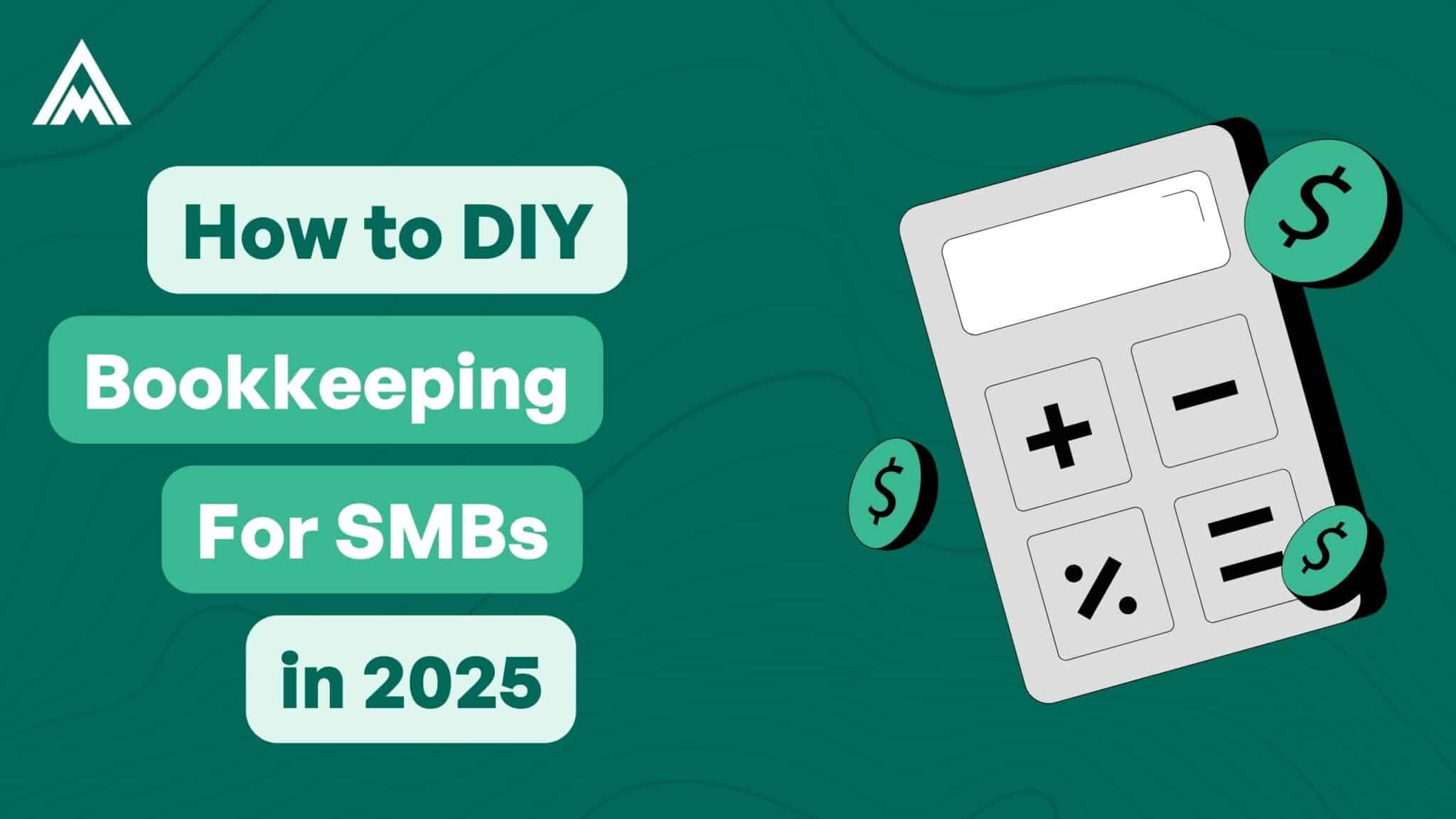Let’s be honest—bookkeeping isn’t the most exciting part of running a business. But if you ignore it, things can get messy fast. Whether you’re a solo entrepreneur or running a small team, keeping your books in order helps you understand your finances, stay on top of taxes, and make smarter decisions.
If you’re not ready to hire a bookkeeper, the good news is you can handle it yourself—as long as you do it the right way. From choosing the best software to a DIY support option, let’s walk through what you need to know about how to DIY bookkeeping for small businesses in 2025.
What Is Bookkeeping, and Why Does It Matter?
Bookkeeping is just a fancy way of saying you’re keeping track of your business’s money—where it’s coming from, where it’s going, and what’s left.
It’s not just about tracking revenue; it’s also about making sure you’re not overspending, missing payments, or scrambling at tax time.
If you don’t keep up with it, things can spiral quickly. You might think your business is doing fine, but then tax season rolls around, and suddenly you owe more than expected—or worse, you realize you’ve been operating at a loss and didn’t even know it.
On the flip side, when your books are in order, you have a clear picture of what’s working, where you need to cut back, and how much you can afford to invest back into the business.
How Often Should You Do Your Bookkeeping?
The short answer? More often than you probably want to. But trust me, the more regularly you do it, the easier it gets.
We recommend setting aside a little time each week to log expenses, categorize transactions, and check your bank balances. It doesn’t have to be a huge time commitment—just thirty minutes to make sure everything lines up.
If weekly sounds too ambitious, at the very least, commit to a bookkeeping check-in at the end of each month. That way, when tax season rolls around, you’re not stuck sorting through months of transactions in a panic. (We’ve been there—and it’s not pretty.)
What’s the Best Bookkeeping Software?
When it comes to picking a bookkeeping system, you don’t want to gamble on some trendy new software that might disappear in a few years. That’s exactly what happened with Bench Accounting—after shutting down in 2024, small business owners who relied on it were left scrambling.
We always recommend QuickBooks Online or Xero. They’re reliable, widely used, and integrate with other tools you might need. QuickBooks has more features but can feel overwhelming at first. Xero is simpler and more user-friendly, but still powerful enough to keep your finances in check. Either one is a solid choice—you just need to pick one and stick with it.
How to DIY Your Bookkeeping Without Losing Your Mind
If you’re handling your books yourself, you need a simple system.
First, make sure your business finances are separate from your personal ones. If you’re still using the same bank account for everything, open a dedicated business account today—it’ll save you a ton of headaches later.
Next, get into the habit of tracking your expenses as you go. Most bookkeeping software will automatically pull in your transactions from your bank, but you’ll still need to categorize them correctly. If you wait too long, it’s easy to forget what certain charges were for, and suddenly you’re left guessing if that $75 expense from three months ago was for office supplies or a client lunch.
Receipts are another thing people tend to overlook. Instead of shoving them in a drawer (or worse, losing them entirely), use a tool like QuickBooks Receipt Capture or Dext to snap a photo and store them digitally. It makes tax time so much easier because you won’t be frantically searching for proof of your deductions.
The biggest thing?
Make sure your numbers are actually right. Every month, take a few minutes to reconcile your bank statements, which just means making sure everything in your bookkeeping software matches what’s in your bank account. If there are discrepancies, figure out why—maybe a payment didn’t go through, or there’s a duplicate transaction. Catching those issues early saves you from major headaches later.
And don’t just track your numbers—use them. Check your profit and loss statement regularly to see how much you’re actually making after expenses. Look at your cash flow to make sure you have enough to cover upcoming bills.
Bookkeeping isn’t just about staying organized; it’s about making smart financial decisions based on real data.
Need a Little Extra Support Without the Commitment?
Maybe you’re not ready to hire a bookkeeper full-time, but you also don’t want to risk making mistakes that could cost you later. That’s where Mahoney CPA comes in.
We offer flexible, one-time check-ins and ongoing support options that fit where you are right now—whether you’re managing the books yourself or just need a pro to review things before tax season hits.
You’ll stay in control of your finances, while gaining the peace of mind that everything is accurate, organized, and ready for whatever’s next.
👉 Let’s find the right fit for you – Contact us here to talk through your options.
Should You DIY Your Bookkeeping?
If you make less than $50,000 a year, DIY-ing your bookkeeping could be a good option. You shouldn’t have too many transactions to go through each month, and if you make it a habit to check in regularly, you’ll stay ahead of any issues before they turn into expensive problems.
That said, DIY doesn’t have to mean doing it alone. If you ever feel like you need extra guidance or want someone to check your work, we’re here to help.
Make more than $50,000 a year? Have contractors? Or a lot of expenses? It’s probably best to outsource your monthly bookkeeping to a professional. Your time can be much better spent elsewhere in the business.
If you’re on the look out for a professional bookkeeper to give you insights into your business that you need, we do that too. You can check out our monthly bookkeeping services here.
We hope this has been helpful!
If you have any questions we didn’t answer, we’re always here to help. Simply head over to our Get in Touch page to schedule a quick chat with our team.
Until next time!

